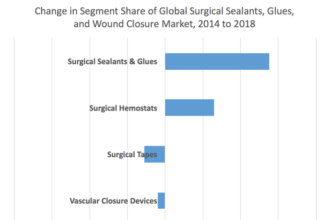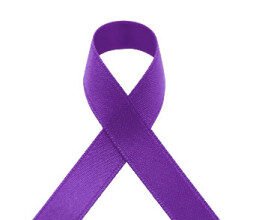EXCLUSIVE POST – The mHealth Summit in Washington DC this week was memorable. In three short years this conference has grown into the largest mobile health event in the world. The energy at this huge and growing conference was palpable.
Discussion Groups
There were 9 different discussion groups scheduled on Tuesday morning. I attended the one on Electronic Health Records and mHealth. The discussion was lively.
EXCLUSIVE POST – The mHealth Summit in Washington DC this week was memorable. In three short years this conference has grown into the largest mobile health event in the world. The energy at this huge and growing conference was palpable.
Discussion Groups
There were 9 different discussion groups scheduled on Tuesday morning. I attended the one on Electronic Health Records and mHealth. The discussion was lively.
The need for good data to use for testing and developing programs is necessary. The Federal Government site HealthData.gov offers some data on behaviors, chronic conditions, etc. However, the need of a public source of anonymized comprehensive EHR data to test applications is needed.
The privacy issues in mHealth are compounded because of the mobility of the system. Who will test for the privacy of this data – the Federal Government or private enterprise? And who will set guidelines and privacy rules about this data? For instance, can the data from deceased patients be used after a period of time has elapsed? Also, how can data be standardized? For instance, data on tobacco use and exercise is available, but it is not standardized and therefore difficult to use.
Morning Keynote
John Stratton, Executive Vice President and COO of Verizon Wireless gave a morning keynote. Mr. Stratton talked about the growing prevalence and costs of chronic disease. He then went on to say that chronic disease, in a large part, can be managed by the patient and that mHealth can play a huge role in this self-management.
Digital care management – low-tech telemedicine that is cloud-based can mean independent living for many of those with chronic disease. Virtual care consultations would not replace the Doctor/Patient relationship but complement it by allowing the patient to easily meet with a virtual care team for better disease management. Connected medical devices could track patient and doctor goals and smart phone accessories could easily download results to where they could be monitored.
Super Session
The Super Session Tuesday was entitled Mobile Health in the Clinical Enterprise. Dr. Krishnan Ganapathy from the Apollo Telemedicine Networking Foundation gave an impassioned talk on mHealth, explaining that many patients do not want hand-holding replaced by technology and that many doctors consider smart phones to be a threat to fee-for-service. He closed by saying that we all need to be as excited by the “h” in mHealth as the “m”.
Dr. Joseph Kvedar from the Center for Connected Health then spoke about taking healthcare out of the hospital and into the patient’s home, sending providers a stream of information so they can collaborate with the patient and care team to make decisions. Feedback loops could be provided for patients/customers and information would be available to providers/care teams in dashboard format. Patients would be empowered to be responsible for their own healthcare and would use mobile communications to connect with a team that would help with treatment decisions. Click here for a short video interview with Dr. Kvedar about his work and his thoughts on the mHealth Summit.
Eric Yoblonka from the University of Chicago Medical Center & Biological Sciences then spoke about the “Ecosystem” of providers, regulatory and government bodies, healthcare professionals, medical industries and patients. This ecosystem is always moving, with trends coming and going and it needs to be connected in a secure and reliable manner.
Donna Ramos-Johnson from DCPCA talked about the scarcity of primary care providers in the Washington DC area and the growing prevalence of chronic disease. She stressed the need to provide tools relevant to those who need them. Minorities have access to the internet primarily through mobile phones, so providers need to be incentivized to treat the patients using this model.
Russell Glascow from the National Cancer Institute talked about the stages of cancer and how mHealth could help with each stage. In the prevention stage, mHealth can offer health literacy and monitoring capabilities. In the acute treatment stage, mHealth can help with shared decision-making and support. In the survivorship stage, mHealth can help with getting the word out to other cancer patients.
Lunch Keynote
Rick Cnossen, Director, WW Health IT at Intel gave a lunch keynote in which he stressed the importance of the “brick-less” clinic. Getting healthcare to the patient is about enabling relationships with all members of the team and holistically driving information to deliver better care. Care needs to be patient-centered and payment reform needs to ensure that payment is the same regardless of where the care comes from.
Themed Tracks
Discussions at the mHealth Summit were divided into Business, Research, Technology, Policy and Finance tracks. One of the business track sessions was on Medical Device Interoperability. This discussion showed just how complex the situation is.
There are thousands of medical devices in any one hospital and most of them have no connectivity with each other. To obtain a seamless “plug and play” takes an enormous amount of work and coordination. Most devices have proprietary interfaces and for vendors, there is no real incentive for interoperability. Providers are doubtful that a efficient, effective and seamless interoperability is even possible and are concerned about costs, and maintaining and validating such a system.
Exhibit Floor
The exhibit floor featured companies of all sizes dedicated to some aspect of mHealth. AT&T, Verizon, Vodafone and Qualcomm were there representing mobile network providers.
Among others there were numerous manufacturers of medical device and remote monitoring systems:
CTIS – medical device interoperability
Vyzin Electronics – remote monitoring
Santech – remote monitoring to help behavioral change
Also present were companies focusing on patient self-management:
mHealthcoach – help with fitness, nutrition, lifestyle
HealthTap – ask questions and get answers from real physicians
MentalWorkout – exercises to help with behavioral issues
Thoughts and Takeaways
In conclusion, the mHealth Summit held a wealth of information about mobile health, present and future. Some of the important takeaways and ideas from this event were:
-The ecosystem of mHealth must include partnerships of industry, government and regulatory bodies, healthcare professionals and providers, and above all, the patient.
-Patients must be empowered to take more responsibility for their own health and wellness
-There must be an efficient, effective, correct and seamless connectivity between medical devices, patients and providers to ensure the best healthcare delivery.
-mHealth must be made affordable for those who need it, and “value over volume” payment reform must happen.








